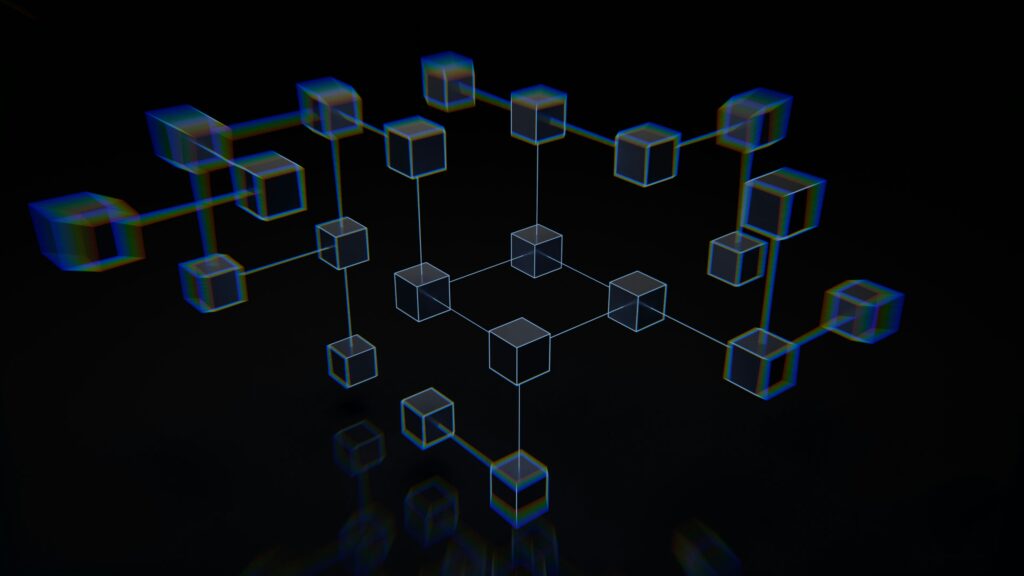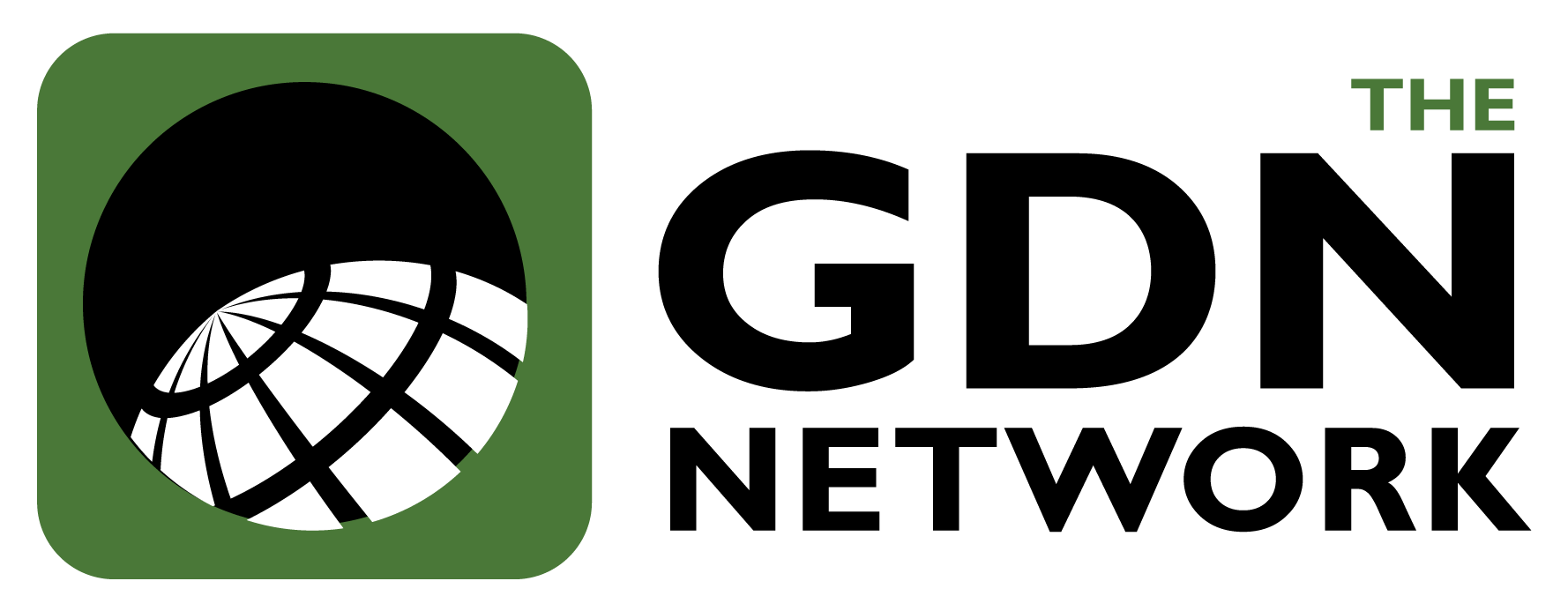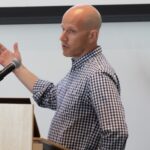A GDN Conversation Series: Exploring the Dimensions of Trust
Five Part Webinar Series developed in partnership with the Velocity Network Foundation
Catalyzing Network of Networks Thinking for Digital Ecosystems
Discover the future of digital recognition through the GDN Network and Velocity Network Foundation’s knowledge building series on trusted ecosystems. These sessions will focus on creating Networks of Networks thinking and capacity as we dive into the foundations of trust, elements of robust digital ecosystems, trust frameworks and typologies, insights into transformative case studies, and the essentials for adopting change. We encourage you to register for as many or all of the sessions as you would like.
Creating Scalable Networks
Join us and learn new ways to create trusted digital ecosystems from thought leaders in the field!
Help shape the future of recognition ecosystems.
- Session 1. Building Foundations: Trust in Recognition Ecosystems
- Session 2. Paving the Way: Roadmaps for Digital Ecosystem Capacity
- Session 3. Deep Dive: Frameworks for a Trust-Based Ecosystem
- Session 4. Innovation in Action: Case Study in Healthcare Recognition
- Session 5. Adopting Change: Driving Education and Innovation
Session 1. Building Foundations: Trust in Recognition Ecosystems
Tuesday, March 11th, 2025 – 11 am ET
Having a digital document is not enough to indicate trust. Explore the critical dimensions of trust within recognition ecosystems so we can learn together what more is needed.
This session breaks down trust into its core components and emphasizes its role in solving major challenges for learners through digital innovation. Learn how trust and trust frameworks act as the foundation for creating and sustaining a digital credential ecosystem.
Topics covered during the session:
- Defining “Trust” and exploring its role in the context of digital recognition and digital credential ecosystems
- Differentiating “Trust” from “Quality”
- Breaking down “Trust” as a multidimensional concept:
- Trust in the issuer
- Trust in the person
- Trust in the relying party
- Survivability of credentials even when the issuer no longer exists
- Trust as it relates to credential compliance with relevant regulatory requirements


Presenters

Stefan Liström
- VNF on Trust: https://www.velocitynetwork.foundation/
- Part 1. https://www.velocitynetwork.foundation/empowering-self-sovereign-identity-with-trusted-credentials-exploring-velocity-network-checks
- Part 2. https://www.velocitynetwork.foundation/velocity-networks-architecture-for-issuer-trust
- Part 3. https://www.velocitynetwork.foundation/authoritative-sources-for-verifiable-credentials
- SLAP / Trust Framework -https://www.velocitynetwork.foundation/the-slap-requirements-for-practical-verifiable-credentials
- Web Video on the VNF Trust Framework: https://www.youtube.com/watch?v=KQPtXthd658
- You can find more information about the Swedish university network Sunet at www.sunet.se

Session 2. Paving the Way: Roadmaps for Digital Ecosystem Capacity
Tuesday, April 23rd, 2025 – 11 am ET
Discover strategies for building effective digital ecosystems with a focus on trust assurance and why this topic matters to policy developers, government, academic leaders, and employers. How do we ensure that when a person moves their credential portfolio from one geography to another, compliance such as privacy regulation is still preserved? How do we handle when a credential says the same words but represents different things? How do we address when an industry sector requires their credentials to look and function differently from a more general academic credential? This session covers the five layers of interoperability—technical, structural, semantic, compliance, and business—and offers a roadmap to unlock opportunities in digital recognition.
Topics covered during the session:
- Key elements of an effective digital recognition ecosystem
- Five layers of interoperability explained:
- Technical: Technology and standards
- Structural: Data schemas and system architecture
- Semantic: Ensuring mutual understanding and equivalency
- Compliance: Navigating regulatory frameworks
- Business: Sustainable financial and access models
- Addressing gaps and challenges when it comes to incorporating the five layers of interoperability
Presenters
- On the European Higher Education Interoperability Framework, see https://education.ec.europa.eu/focus-topics/digital-education/digital-education-hub/workshops-and-working-groups/european-higher-education-interoperability and some slides at https://cloud.lju.tueck.de/s/cXegm5kEpd9fFQS
- On the QualityLink project, see https://quality-link.eu/
- About KIC, https://knowledgeinnovation.eu/
- On Data Standards United: https://datastandardsunited.org
Five layers:
- Technical: Standards, APIs, and platforms
- Structural: Data models and architecture
- Semantic: Shared meaning, metadata, and taxonomy
- Compliance: Legal, regulatory, and privacy adherence
- Business: Economic viability, access models, and sustainability
- The DSU Vision: Collaborate and align standards to support the global education and workforce digital ecosystem The DSU Mission: Establish a sustainable collaborative of Data Standards Development Organizations (SDO) and their stakeholders across education, employment, and training sectors
Session 3. Deep Dive: Frameworks for a Trust-Based Ecosystem
Wednesday, May 14th, 2025 – 10 am ET
Delve into trust frameworks critical for a healthy recognition ecosystem with a particular focus on the “envelope” carrying the actual credential and information about the artifact of learning, as opposed to the content within the artifact of learning. This session explores various typologies, analyzing their strengths, weaknesses, opportunities and considerations, and features examples that outline essential roles in creating effective digital ecosystems.
Topics covered during the session:
- Trust frameworks: What they are and why they matter
- Considering principles to guide interoperability frameworks to enable trust
- Evaluating approach typologies: Strengths, weaknesses, opportunities and considerations
- Challenges and opportunities in building trust networks
- Considerations in selecting and implementing a trust framework.
- Insights from featured examples:
- Roles and responsibilities in building ecosystems
- Lessons learned and scalable practices

Presenters

Session 4. Innovation in Action: Case Study in Healthcare Recognition
Tuesday, June 17th, 2025 – 11 am ET
Gain practical insights from a case study on driving digital innovation adoption within a healthcare recognition ecosystem. Learn how digital tools and strategies address specific industry challenges, paving the way for broader applications.
Topics covered during the session:
- Case study overview: Healthcare recognition challenges and solutions.
- Identifying key stakeholders and their roles.
- Digital innovation tools: Implementation and results.
- Building an ecosystem that fosters trust and collaboration.
- Lessons for applying these strategies in other industries
Presenters
Session 5. Adopting Change: Driving Education and Innovation
Understand the dynamics of change management in the recognition ecosystem. Highlighting exemplars, this session unpacks key elements for a successful ecosystem and adoption strategies. This session focuses on building “atomic networks” and solving the “chicken, egg, and rooster” dilemma.
Topics covered during the session:
- Change management fundamentals in the digital ecosystem
- Key elements common to a successful ecosystem:
- Narrow scope (geographic and industry)
- Brave leadership
- Agile, experimental approach
- Collaborative community
- Exemplars: Successful adoption case studies
- Designing atomic networks for scalable growth
- Addressing the “chicken, egg, and rooster” challenge:
- Sequencing ecosystem development for maximum impact
- Strategies for sustaining momentum post-adoption

Moderator for the Sessions












